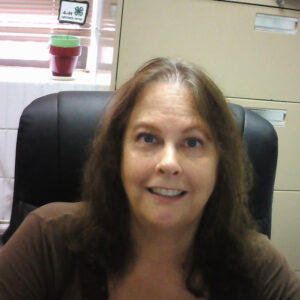Nancy Ooki
Graduate Certificates in Online Learning and Teaching & Sustainability and Resilience Education

“The connections to the restoration in Lahaina included a foundation of ‘ulu-based learning experiences…”
Hometown
Haʻikū-Pauwela, Maui
Departments
Curriculum Studies; Learning Design and Technology
Related Degrees
- Graduate Certificate, Online Learning & Teaching (COLT)
- Graduate Certificate, Sustainability and Resilience Education
How did you become interested in these different fields of education?
Prior to working with the University of Hawai‘I, I was a computer teacher in a private school and had taught at other universities focusing on STEM, but I came to enjoy the instructional design and evaluation components that allow connections to the students. Having lived on Maui since 1985, I feel most comfortable in the islands and have worked to embrace the unique culture and values found here. The sustainability and resilience education certificate appealed to me as a way to both deepen my own knowledge and to gain tools that I could use to help inform others as well.
Where do you work?
I work for the UH Mānoa Family and Consumer Sciences Department in the College of Tropical Agriculture and Human Resources (CTAHR). I am a county-based extension agent faculty member who is located on the island of Maui and is responsible for youth programming for the islands of Maui, Moloka‘i, and Lāna‘i. In addition to other youth education programs including disaster preparedness, workforce readiness, local food systems, and STEM, I coordinate the 4-H Youth Development program for Maui County.
Tell us about the curriculum you created on breadfruit and restoration efforts in Lahaina.
The curriculum was originally a collaboration with Upward Bound program director, Jana Wilkinson, as part of a course project for EDCS 640P: Seminar in Place-based Education with Dr. Pauline Chinn. The piloted program was based on a hybrid lesson that included in-classroom knowledge assessment and background information instruction followed by in-person educational activities in the garden. The lesson began with students engaging in kilo, or the act of observing their surroundings, followed by sharing their observations. The connections to the restoration in Lahaina included a foundation of ‘ulu-based learning experiences such as discussing a breadfruit-centric Hawaiʻi proverb (o’lelo no’eau), reading and interpreting the story of Kū (mo’olelo), and then sharing a Hawaiian newspaper article (nupepa) that mentioned the abundance of ‘ulu found in Lahaina at the time of the article (1877).
At the time of the lesson delivery, a group of Maui organizations working with the University of Hawaiʻi were working on collecting ‘ulu roots and cuttings from the burned areas in Lahaina to restore the plants. This article was shared with the youth along with a facilitated discussion about the project and the recovery of Lahaina. Since the pilot, the curriculum has been expanded to include two other place-based lesson plans that provide more context and information and culminates in a community service project that allows students to use their knowledge to create a Call to Action for the community. The additional lessons, along with the original commodity-based lesson, are meant to cultivate a sense of kuleana in youth towards the land and local agriculture by allowing them to form their own connections to the ‘aina. The goal is to spark the passion for taking care of the local environment by strengthening awareness and understanding of the place where they live.
How has the COE program impacted or benefited your career path?
The new knowledge gained from the graduate certificate has allowed me to begin to adapt a lot of national and non-local curricula to make it more meaningful and impactful for local youth and their communities.
What are your future plans with your degree?
I will continue to work on adapting curriculum and programs for the youth in Maui County and the state of Hawai‘i through my current position with the university.
How can people learn more about your ʻulu lessons?
I hope to have a shareable curriculum shortly after making some final adjustments to the expanded lessons. Anyone interested in learning more about it or piloting the ‘ulu lessons can contact me at ooki@hawaii.edu.
